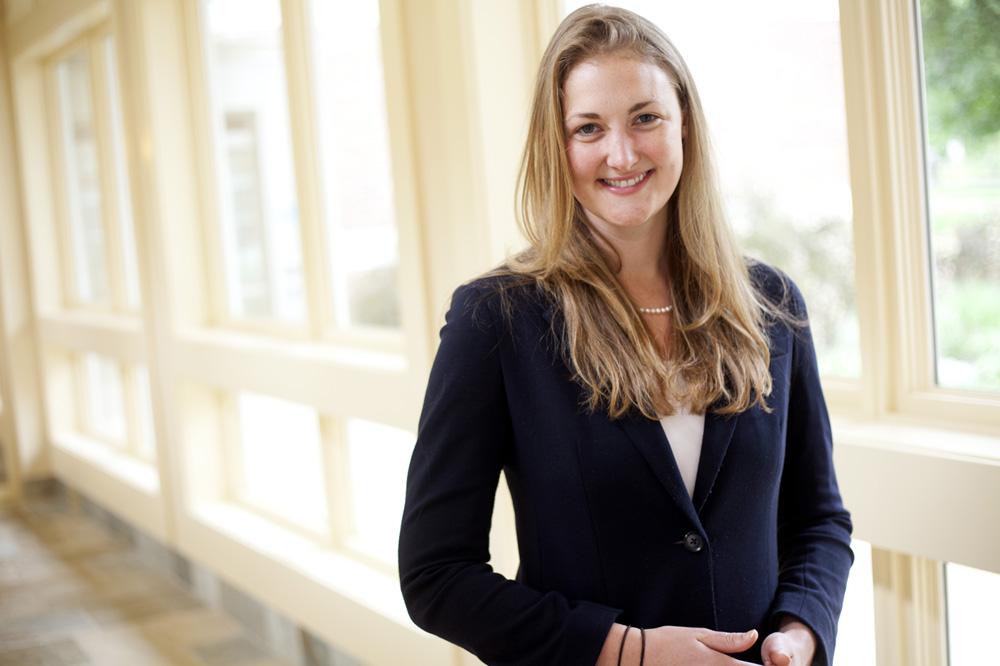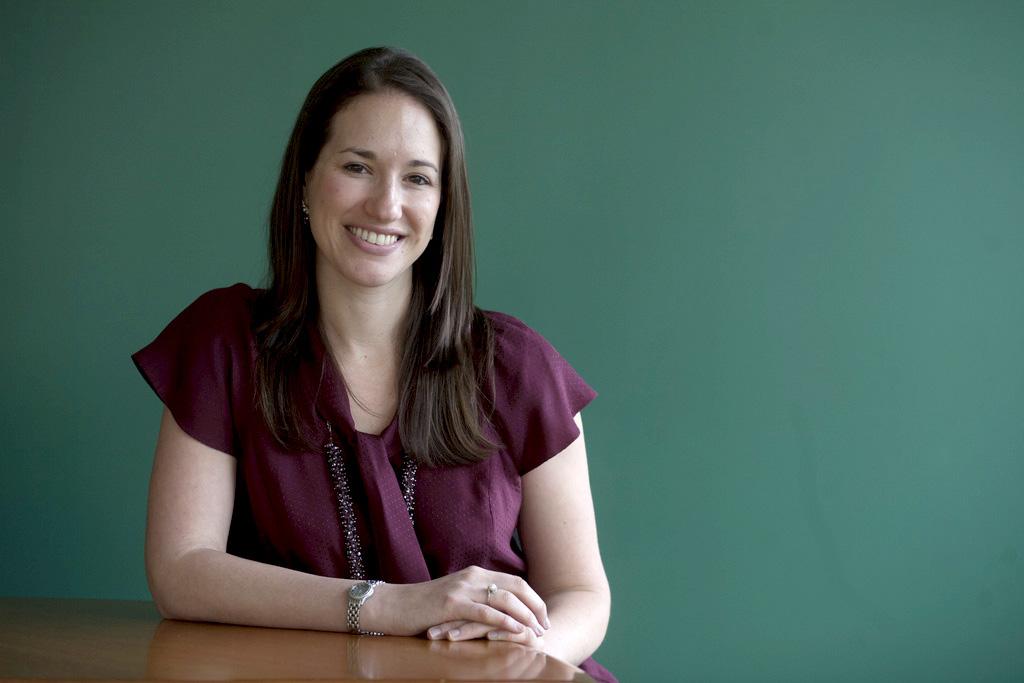New Leaders in the Business of Health Care
Tuck’s Class of 2013 includes the first recipients of the MBA-MPH joint degree with The Dartmouth Institute for Health Policy and Clinical Practice.
Tuck’s Class of 2013 includes the first recipients of the MBA-MPH joint degree with The Dartmouth Institute for Health Policy and Clinical Practice.

Kate Head T’13, TDI’13 will join the Chartis Group, which provides consulting to medical centers.
For Catherine Augustyn T’13, TDI’13 (below), a career in health care was in the plan all along—both of her parents were doctors and she assumed she would be one too. But a job in health care consulting after graduating from Princeton University showed her she didn’t need to be a physician to have a stimulating job in the field. “I started to realize I liked the strategy, operations, and management we were recommending to our clients,” she says.

Catherine Augustyn T’13, TDI’13 will be a project manager under the CFO at Massachusetts Eye and Ear.
Tuck has long recognized the value of integrating management and health care—the MD-MBA joint degree with the Geisel School of Medicine was first offered in 1998—but in the last five years the school has made a deliberate effort to draw health care issues deeper into the MBA curriculum. Since health care spending is the largest single component of the U.S. economy—accounting for about 20 percent of GDP—this added attention only makes sense; the business opportunities are legion, and the need for better efficiency and value is acute. As a result, and with the support of numerous Tuck alumni, Tuck launched the Healthcare Initiative (HCI) in 2008. The HCI has expanded the Tuck curriculum to include more courses on health care, networked with alumni doing consulting and finance work in the field, developed career paths in health care for students, and organized the annual Uhrig speaker series on health care. And over the last several years a large and active Tuck Health care Club has been developed which now has over 100 student members.
“The Health care Initiative provides great benefits even for the students not interested in health care,” says Paul B. Gardent, an adjunct professor of business administration at Tuck and co-executive director of the HCI. “There’s nothing more complex as an organization than a medical center.” That complexity provides perfect case studies for MBA courses such as Operations Management and Managing Complex Organizations, among others. Similar opportunities exist in finance, marketing, and entrepreneurship.
The MBA-MPH program is a natural extension of that theme, designed for students who want to combine the comprehensive management education available at Tuck with the fluency of health policy and clinical practice issues afforded by TDI. “The combination of those two programs we thought would be a really terrific marriage,” says Gardent, who is also the director of the joint degree program.
The MPH degree at TDI is a one-year, 56-credit program for full-time students, and it is integrated into the two-year MBA program at Tuck so that joint-degree students graduate with the classmates with whom they started. While the workload of fitting three years of education into two years is considerable—roughly 30 percent more than a typical MBA—the first graduates report that it is manageable, especially when you account for Tuck’s minimum requirement of four courses per term. “You lose some of the travel opportunities in the MBA to do the MPH coursework,” says Head, “and you sacrifice a little relaxation time in your second year, but I think it’s worth it.”
For students who want to take more time for the MPH but still graduate with their MBA class, it’s possible to push some of the TDI coursework, or the internship and final project, into the final summer. “Tuck is very supportive of that,” says Augustyn, “especially if it means you get more out of the program. Tuck in general is a place that’s small enough that you can make it what you want.”
In addition to the regular courses in the MPH program, students complete a capstone project that applies their learning to a real-world situation. It’s akin to the First-Year Project at Tuck—developing methodologies, doing analysis, making recommendations—but more research-based and individual. The final product is a 20- to 40-page paper and a presentation to faculty. Augustyn did a quality improvement study at Massachusetts Eye and Ear; Head designed a sanitation system intervention for a community in Tanzania, fulfilling a curiosity about global public health.
Reflecting on that project, Head was impressed with her ability to drop into an unknown place and make real strides for health care improvement. “I had all these different public health models to represent the different issues,” she explains, “but also had the business school related issues like budget and timeline. I can now wear these different hats.”
Commenting on Head and Augustyn, Gardent concluded, “If our first two graduates are any indication, our MBA-MPH joint degree students are going to really enrich both the Tuck and TDI student bodies. And we know these graduates will play a leadership role in improving health care.”